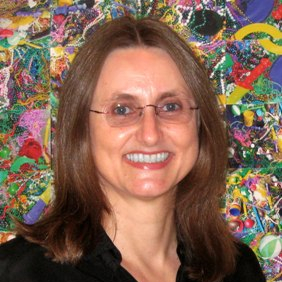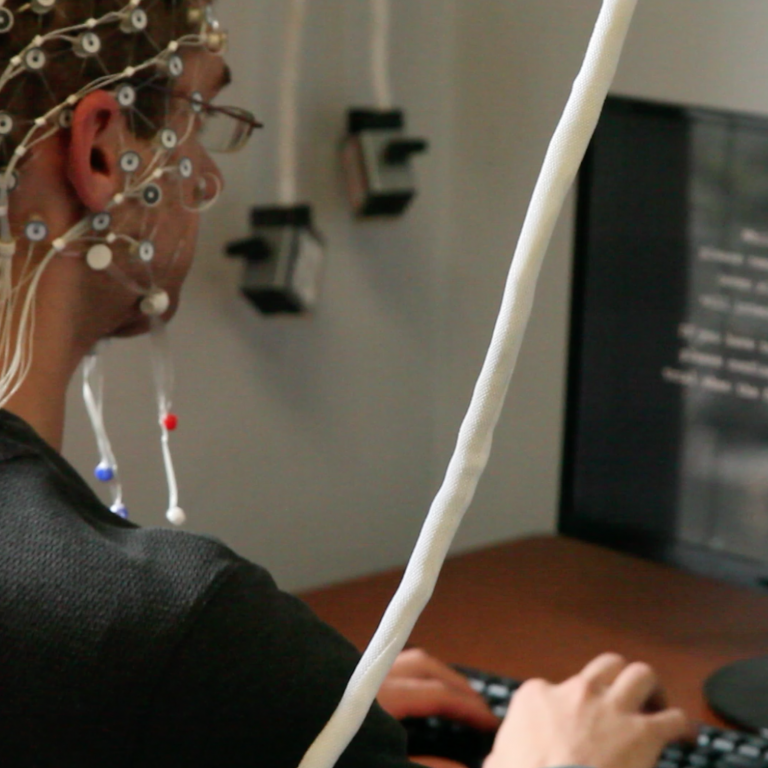Monika Ardelt, PhD is an Associate Professor of Sociology in the Department of Sociology and Criminology & Law at the University of Florida. She studies adult human development across the lifespan with particular emphasis on aging well and dying well. She has published numerous sociological papers with a major contribution to research in wisdom with the development of the Three Dimensional Wisdom Scale (3D-WS).
The following is an excerpt from the documentary film The Science of Wisdom. In this interview, Dr. Ardelt discusses how she came to study wisdom from the life span perspective, how life experiences may inform different paths to wisdom, and how the concept of wisdom may be influenced by context and culture.
Jean: What led you from human development research to the study of wisdom?
Dr. Ardelt: Well, it started out with my dissertation research which focused on life satisfaction in old age. I wanted to find out what determines life satisfaction in old age. As a sociologist, we typically look at objective life conditions like socioeconomic status, financial situation, gender, health, education, and connection in the community. All those might be important to a certain degree, but I also thought there might be something else like coping, or maybe something like wisdom. How do you study this; how do you measure this? I went to the library to pick up a book for my dissertation and right next to it was this [edited book on wisdom by] Sternberg. People are actually studying wisdom! However, I noticed that people did not agree on what wisdom is. There was not one unifying definition of wisdom. A lot of people referred back to a study by Clayton and Birren done in the 1980s. In the study, they asked a group of younger and older people what wisdom is and then they took those characteristics and asked another group of younger and older people how characteristic these qualities are for a wise person, for an old person, and for self. Then they did a multi-dimensional scaling analysis and found that wisdom consisted of what they call three dimensions- cognitive, reflective, and the affective dimension. When I read this, I thought, maybe you cannot measure wisdom directly, but you could certainly measure the cognitive, reflective, and affective dimensions of wisdom, and that's basically what I started doing with the longitudinal data set that I had. I used the California Q-Sort and Haan’s ego rating scales to come up with cognitive characteristics, reflective characteristics and affective characteristics (which I now call compassionate characteristics) of wisdom, and the combination of those characteristics. Indeed, wisdom was the strongest predictor of life satisfaction in old age. That was the beginning. From there I looked at all possible published questionnaires that might fit into those three dimensions and started out with 140 items. I gave those items to180 older people, tested the items, and then reduced them to 39. And this is the three-dimensional wisdom scale (3D-WS) that I developed and have used in research ever since. So wisdom is inherently a developmental concept, at least we think it develops with time. You're not born with it, but it should grow as you get older. And so in this way, how people have dealt with life should then show up in how successful they age and also how well they might die.
Jean: Thinking about things from a life span perspective, are there specific types of experiences that would more likely lead to wisdom than other types of experiences?
Dr. Ardelt: Well, Juan Pascual-Leone has argued that there are basically two paths to wisdom. One is through what he calls ultimate limit situations - situations, crises, obstacles in life, but really more devastating than that. I would argue, actually, that wisdom also develops through the minor crises and obstacles in life--basically learning from negative experiences in life. You can also learn from positive experiences, but the negative experiences jolt people out of their everyday rut and sometimes might force them to change priorities. Somebody loses a job at mid-life and questions what is really important in life; and then they start a new career or something that might be more meaningful…[and] they might want to contribute more to society. In this way, he [Pascual-Leone] would argue, this is one pathway to wisdom. The other pathway, what he would argue, is meditation. He would say that we don't necessarily have to have those traumatic experiences. One can just sit and reflect on what is important…without necessarily having this really big event. So negative experiences can actually be the teacher that help to develop wisdom.
People say learning from experiences is really important to develop wisdom, but the key is learning from experiences, not just having experiences. It doesn't mean that every negative experience will automatically lead to wisdom. It could also lead to despair and devastation. It's not automatic. But a negative experience might lead to post traumatic growth.
Jean: In your assessment paper of the 3D-WS, you discuss the differences between Eastern and Western cultures and their concept of wisdom. Could you talk a little bit about that?
Dr. Ardelt: Western research on wisdom typically focused on the cognitive elements, particularly on knowing the fundamental pragmatics of life -- how to live life, how to plan life, the meaning of life, the focus was on knowing. In Eastern wisdom traditions, there is a lot of focus also on compassion and having positive interpersonal relationships, benevolence, and helping other people. In some ways with the three-dimensional wisdom scale, I tried to combine the elements of cognitive, reflective, and the compassionate elements. The interesting part is when you ask lay people what they think wisdom is, many would actually include this compassionate, benevolent, caring element.
Wisdom is really a bottom-up approach. You cannot command wisdom from the top.
I define wisdom as a combination of cognitive, reflective, and compassionate dimensions. The cognitive dimension is knowing something, but it's not necessarily knowing a lot or knowing about how the universe originated or the latest news in quantum physics. It’s deeper knowledge about the human condition and the deeper meaning of life. For example, the philosopher Kekes says wise people don't necessarily know more than other people, but they know the deeper meaning of what everybody else knows. A good example is: We are all mortal…wise people understand the meaning of ‘we are all mortal’ and they live their lives accordingly. That means they set priorities, taking into account that their life will end eventually. They also recognize that the lives of all their loved ones will eventually end, and they live their lives in a way that appreciates other people in a deeper way. Wise people know about the interpersonal aspects of life. They know about other people, how they relate, how to relate to other people, but they also understand themselves. Wisdom traditions say know thyself. So, what does this mean?Know thyself? It means to really look deep into oneself and understand who I am at a really deep level. For that, one needs the reflective component of wisdom. The reflective component of wisdom basically means looking at things from different perspectives, but also looking at yourself from an outside perspective, which requires self-reflection and self-examination. If you do that, you realize that you don't only have positive aspects, but also negative aspects. By accepting this - that there are positive and negative aspects in you - you reduce your ego-centeredness and become more tolerant to other people who might also be not perfect. So once you can accept that you are not perfect, it is easier to accept that other people aren't perfect either. And that leads to the compassionate component, which I basically define as sympathy and compassion for others. So those three components I would define as wisdom, but it’s the combination of the three components that matters.

Monika Ardelt, Ph.D.
Associate Professor of Sociology, University of Florida
Reference
The Science of Wisdom, produced by the JJ Effect, directed by Jason Boulware





